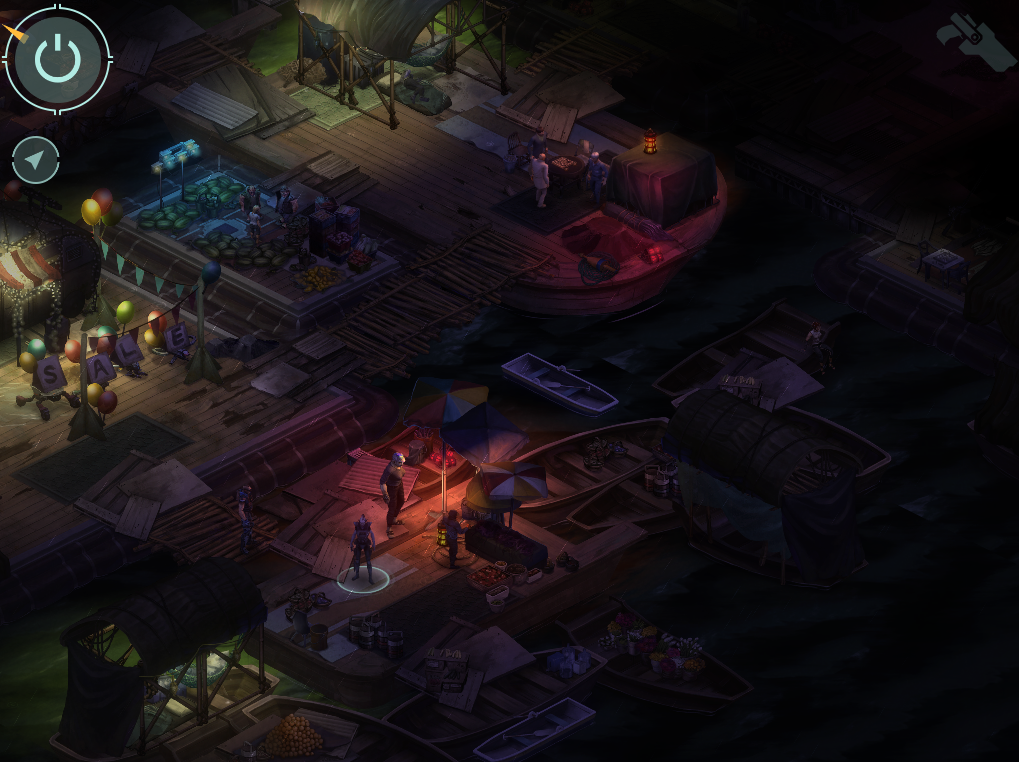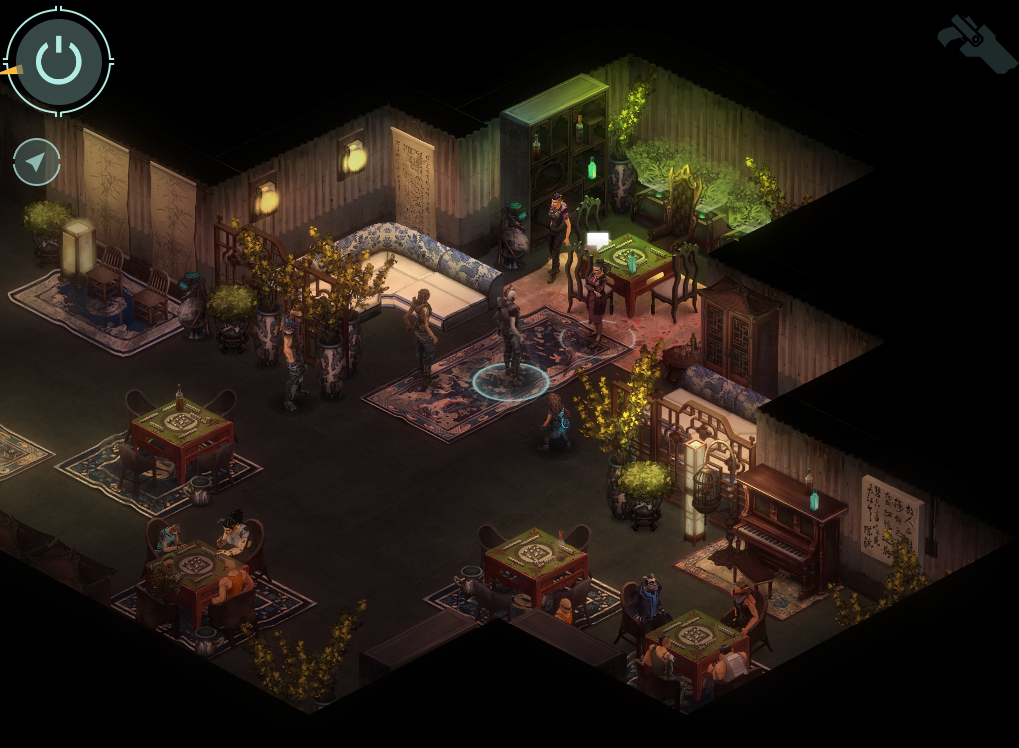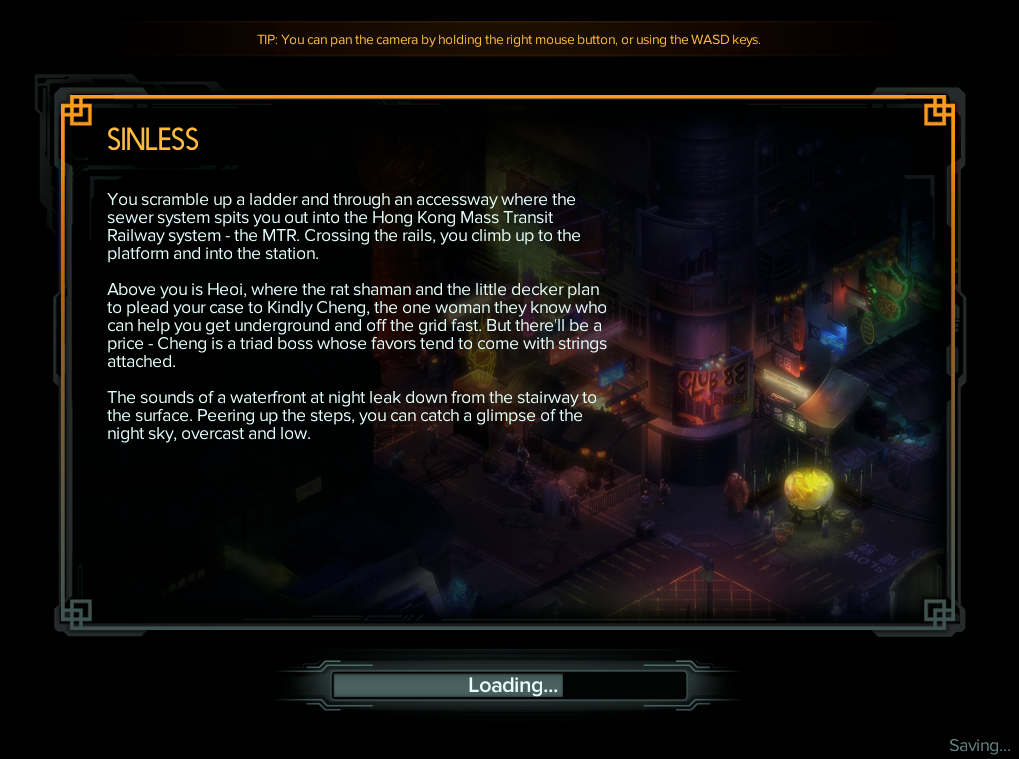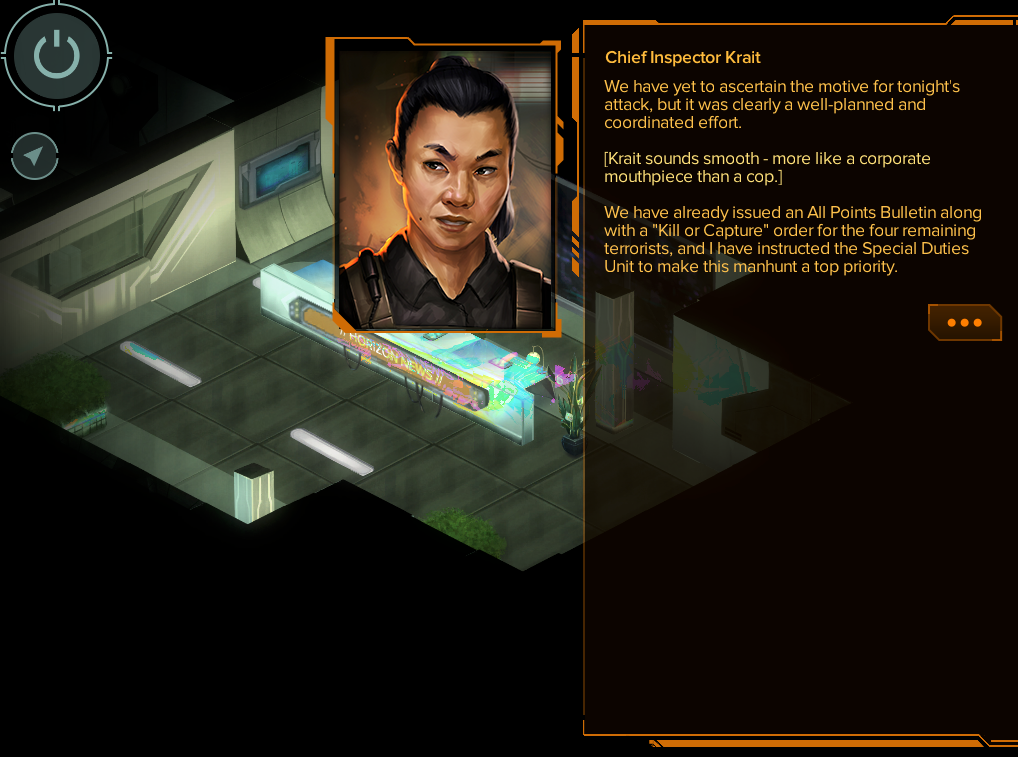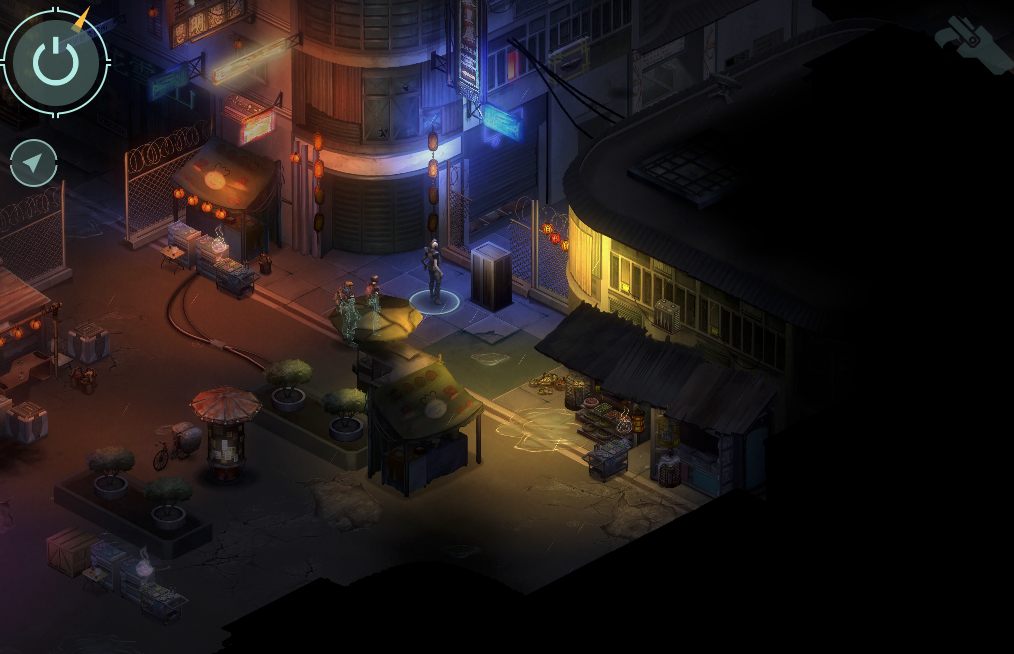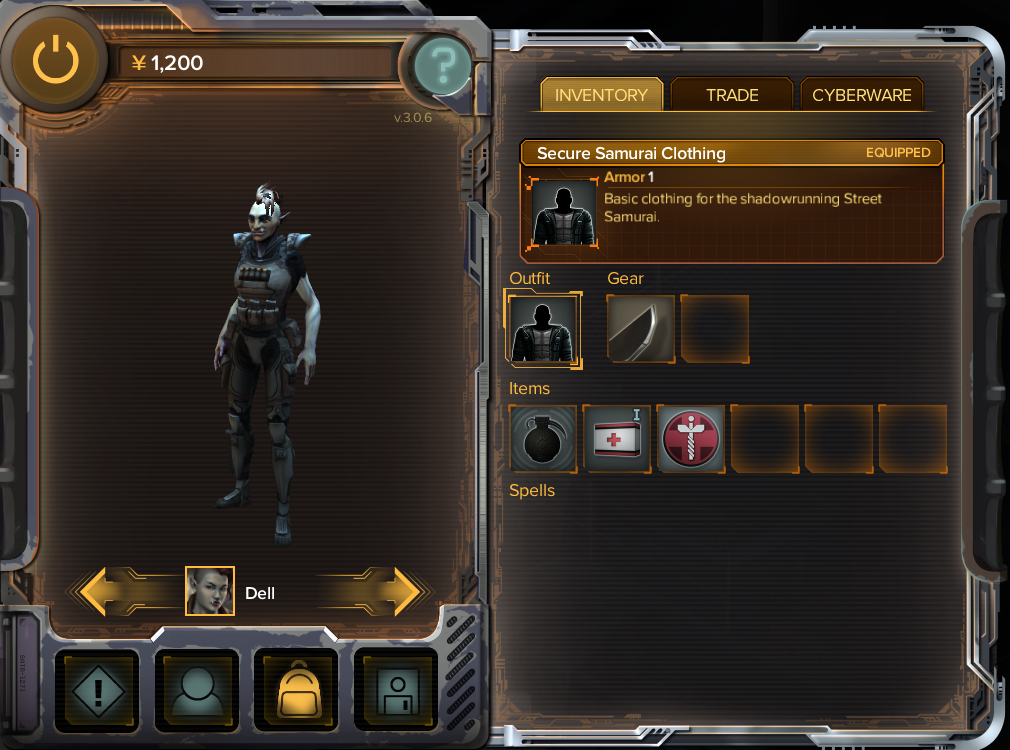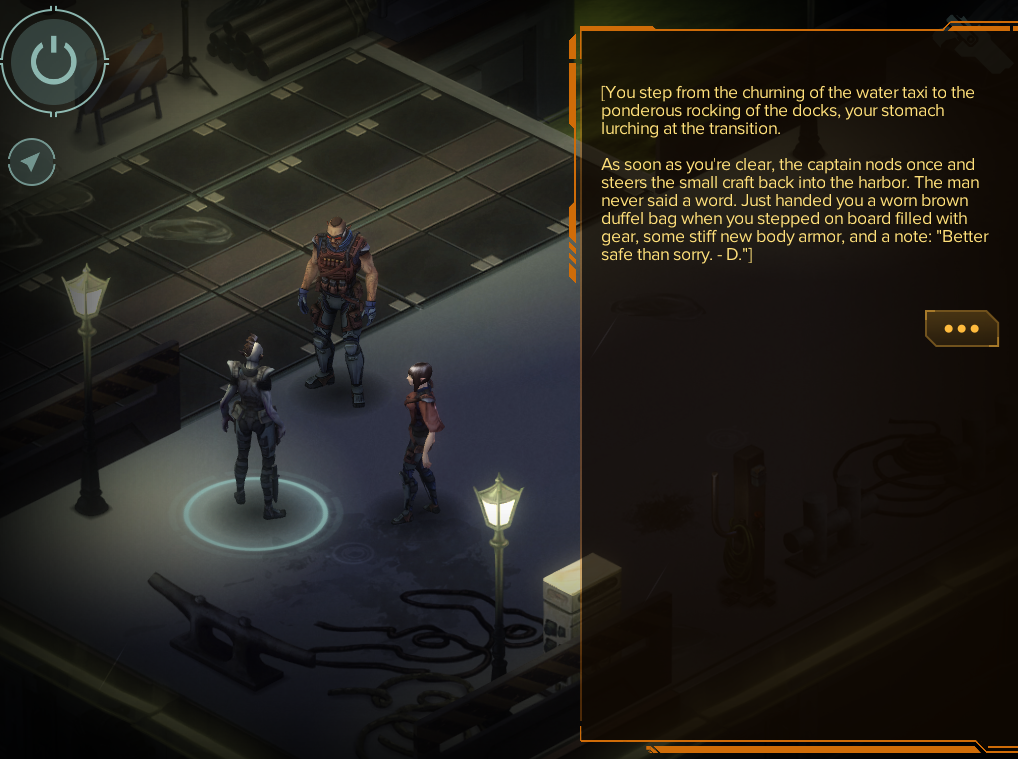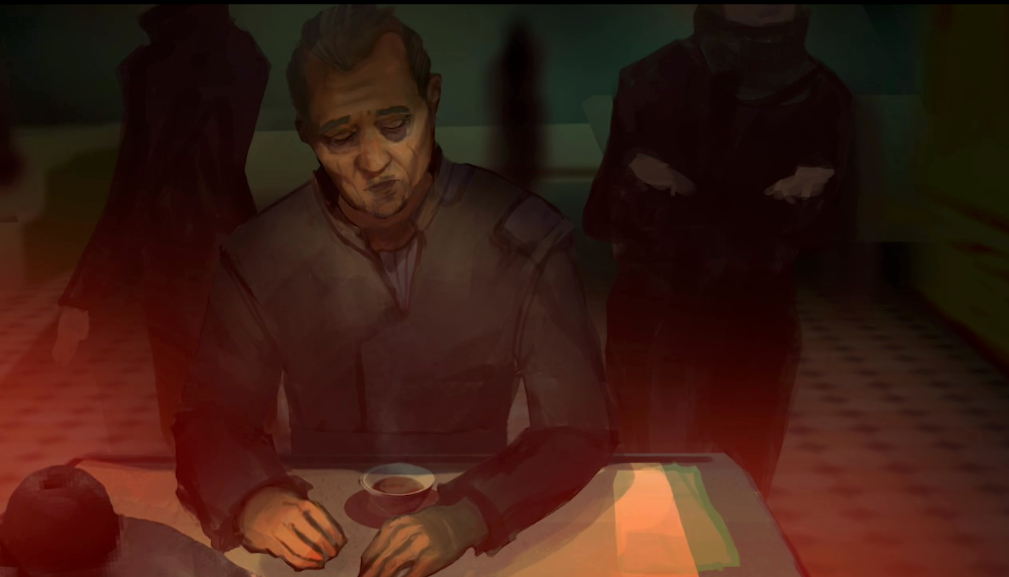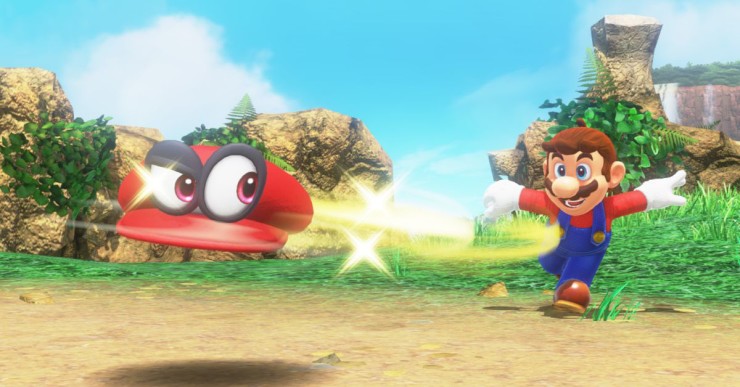It seems strange that Shadowrun is only just over twenty-five years old; for me, Shadowrun, that dour, gritty marriage of cyberpunk and fantasy that so made William Gibson roll his eyes, feels eternal. I feel like the landscape has been littered with books and games in the Shadowrun universe for as long as I’ve been alive, but the truth is that while the list of books is long, and the tabletop RPG kicked things off, only a handful of digital games have been created for Shadowrun, and many of those in the past few years. I was surprised to see how much time had passed since I’d played Shadowrun on the Xbox 360, for instance (eight years!).
Shadowrun: Hong Kong is the most recent of the boom in Shadowrun games, the third from Harebrained Schemes, a game that was originally crowdfunded as additions to their other titles. The funds allowed the team to build on the engine and add things they weren’t able to do before, but I will preface this by saying I haven’t played Harebrained Schemes’ other Shadowrun titles. I have, however, talked to some folks who have, and reports are this game continues in much the same vein, thematically and mechanically, though with stronger visuals and more streamlined systems, so if you liked those, you’ll probably like this. That said, let’s get down to the details.
S: HK is a turn-based, tactical isometric RPG that drops the player into the middle of a missing-person drama spanning the sinister underworld of futuristic Hong Kong. Action here is largely written, and while it’s full of lush description, that description often does not match up with the screen — characters will be standing, but the narrative references sitting, along with other movements, like drinking, smoking, gesturing, and more. The disconnect is strange at first, but the narrative is strongly written, with nimble language and rich moments of character development even when it runs long. The difference between what the player is told and what the player sees fades quickly. A more troubling issue is the difficulty with figuring out new mechanics or modes when they first come up. For example, near the beginning, the player has to choose a team member. How? The game offers little instruction until a certain interaction triggers the addition, but there’s nothing that clearly telegraphs the proper order or mechanism. I only managed to figure it out after giving up and deciding to move on with what I had if necessary. Again, players who haven’t been in the earlier games will get used to it quickly, but the lack of direction in a game that feels relatively linear is a bit of an issue at first, and may be one that’s unique to my particular approach. I hate feeling like I’ve missed things, so when I have system-based questions about what to do to advance a mission, sometimes I am afraid to do anything at all. I’ve stopped many a game for that reason, and I’m interested enough in the central mystery of S: HK that I don’t want to do that.
The story element — those long text sequences — ramps up as the player progresses, and the disconnect feels like less of an issue, though I will say those long conversation sequences make this a game one can’t just pop in and play for a short time, not if a player wants to make any real progress. Combat, too, can take some time, with the turn-based battles. But those are small complaints; if the worst thing I can say about a game is that I spend too much time on it, I’m doing pretty well, I think.
Which brings us back around to the story, and the world, of Shadowrun: Hong Kong. When I created my character, I chose to play as a woman (specifically, a female Ork street samurai), and because a number of the characters in the storyline, at least to this point, are also women, my game experience has been very female-dominated. In fact, to this point, I’ve dealt with only three male characters of any note, while six notable female characters have surfaced, and two of those wielded some sort of significant power. That’s so unusual an experience that it’s much on my mind as I play through the game. These women are strong, capable, and in keeping with the universe of Shadowrun, are not the standard sexpot fucktoy roles many female characters in other games inhabit. Multiple women of color, women warriors, and women crime bosses abound, and I’ve only scratched the surface of the narrative. I think I’d continue playing just for novelty’s sake.
Luckily, however, I’m into the story. The narrative itself, despite the density of text, is somewhat thin, and stretched over well-trod territory: character with sketchy past returns home to assist guardian figure in trouble and must reconnect with others along the way while redeeming self. Standard. But the dialogue choices allow the player to construct some different narratives around the core story — are you a liar? Will you be more of a white hat regardless of your sketchy past? What motivates you? — and since the game relies only on dialogue-based reactions rather than overlays reminding you that actions may have an impact (think The Walking Dead and Life Is Strange), that narrative feels organic. Already I’m considering starting another character, just to track differences across choices, and any game that makes me want to play again, in a different way, feels worth a recommendation.
In fact, any real qualms I have come down to personal issues. I’ve never been a big fan of isometric views, and I wish I could zoom in here more because the areas are quite detailed and lovely. Sometimes, that feels like a waste, like there could be so much more happening. I want to talk to the people; I want to look at the fruit in the market bins and see the piles of trash in the alleys. This is a rich, well-drawn world, juxtaposing glitz and glitter and seedy dark alleys, and most of it seems just out of reach, which is a little frustrating, but not enough to keep me from turning it on and seeing what will come next. The soundtrack, too, is gorgeous, providing a layer of atmosphere and drama that deepens connections to the narrative. Shadowrun: Hong Kong may not be a perfect game so far, but it’s a memorable experience.

